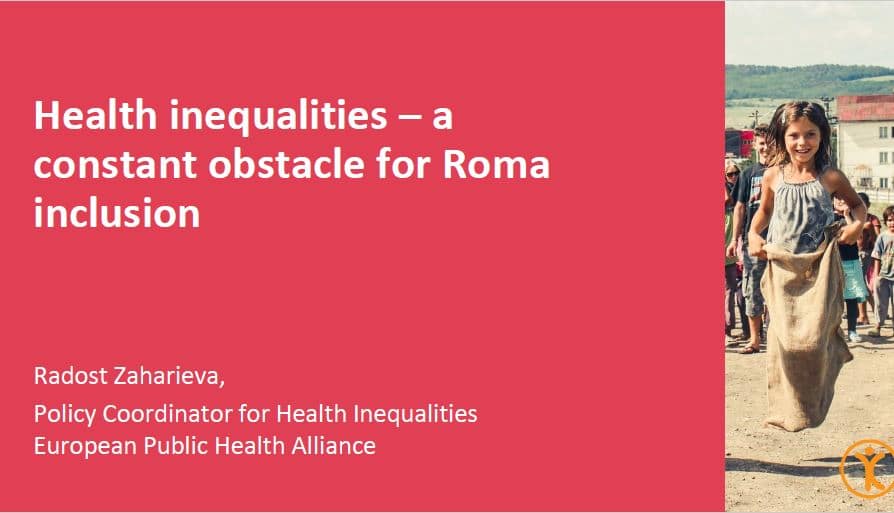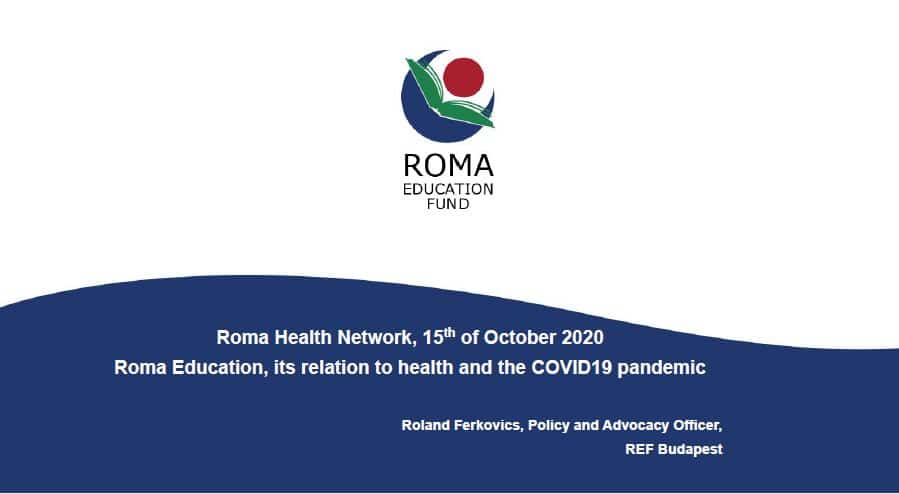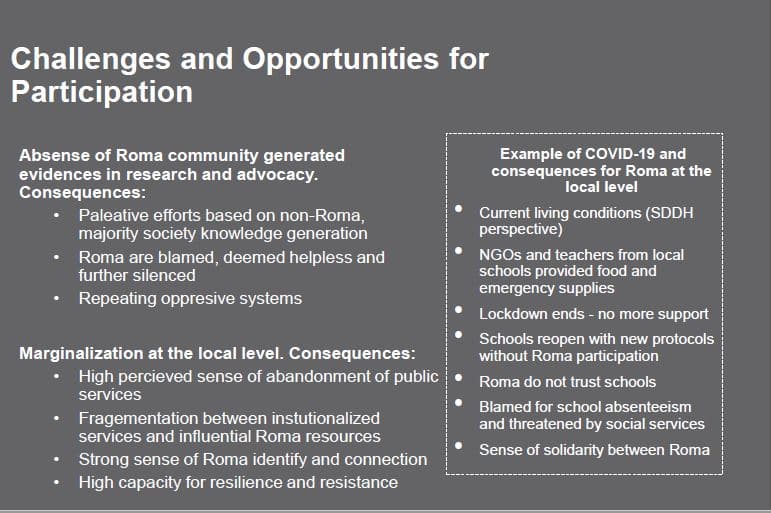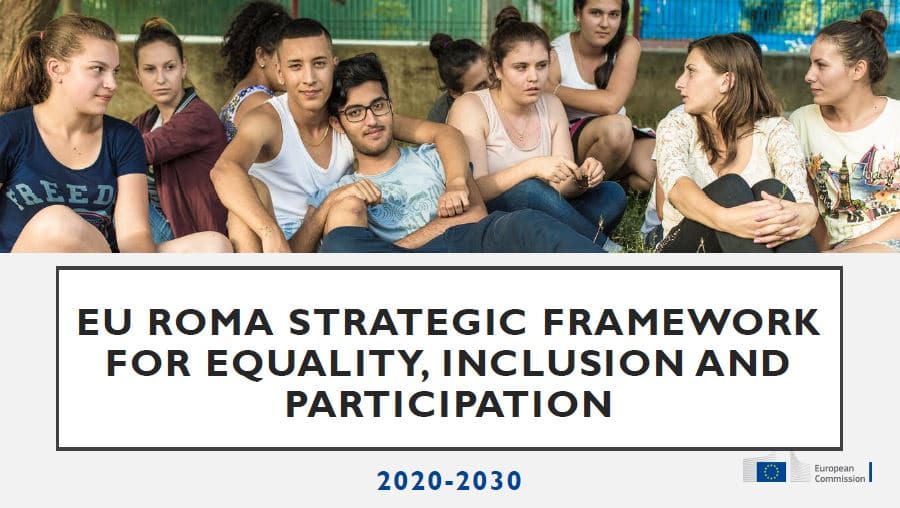Gender-based violence in COVID-19:
a double challenge for marginalised groups
8 March 2021
14:00 - 15:15 CET
Webinar
According to the UN, one in three women is subjected to sexual or physical violence during their life, impacting on their physical and mental health, and leading to further health inequalities for girls and women from marginalised communities, which has been exacerbated by COVID-19
Tackling violence against women and girls requires significant efforts to solve long-standing issues such as structural discrimination.
On International Women’s Day, join the European Public Health Alliance to discuss the causes of gender-based violence, from the perspective of marginalised girls and young women; and how key stakeholders such as civil society and policy makers can be mobilised to strengthen the protections for vulnerable women and girls against all forms of violence, particularly as national COVID-19 recovery plans are being developed.
Event Takeaways
Address the gender dimension of health and social inequalities
Increase understanding about the interrelation between structural discrimination and gender-based violence
Reflect on the intersectional links between ethnicity, age, social and administrative status and gender-based violence
Strengthen the policy commitment to women’s rights protection promoted by the TFEU, the EU Charter of Fundamental Rights, the European Pillar of Social Rights and its future action plan
Mobilise stakeholders, including civil society and policy makers against gender-based violence with a focus on marginalised groups
Event Highlights
Programme
14:00 – 14:05 | Welcome and Opening Remarks
Opening remarks: European Public Health Alliance
Video on the EPHA Charter on Health Equity
Systemic discrimination and gender-based violence: a dangerous combination exacerbating health inequalities that affect marginalised groups
Protection of migrants and refugees women against gender-based violence – accessibility and availability of national protection and prevention mechanisms
- Thomais Hatzigeorgiou, Human Rights 360, Greece
Reducing inequalities in housing to increase the protection of women from vulnerable groups: what we learned from the pandemic
- Dalma Fabian, Policy Officer FEANTSA
Effective access to justice for marginalised population groups as a measure for tackling gender-based violence and structural discrimination against Roma women
- Jasminka Frishchikj, Executive Director of ESE Association for Emancipation, Solidarity and Equality of Women, North Macedonia
Policy and legislative solutions for tackling gender-based violence
The role of national public health systems in mitigating the health effects of gender-based violence
- Peggy Maguire, Secretary General, European Institute of Women’s Health
15:00 – 15:15 | Q&A and final remarks
Get the EPHA Newsletter
The best of our activities, right in your inbox!





